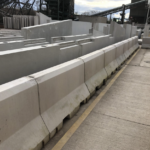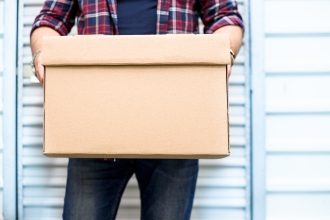In the middle of the night, you wake up to find that your home is flooded by a burst pipe or that your toilet is clogged and making a total mess in the bathroom. When this happens, being able to call a reliable emergency plumbing service can mean the difference. Discover all you need to know about emergency plumbing in this article.
1. Look for Your Main Shut-Off Valve.
The main shut-off valve controls the flow of water into your home, and turning it off can help prevent water damage in the event of a burst pipe or major leak. Typically, the main shut-off valve is located near the water meter or where the main water line enters your home. Take the time to locate this valve and make sure everyone in your household knows how to turn it off in case of an emergency.
2. Have the Right Tools on Hand
Having the right tools on hand can help you quickly address plumbing emergencies. Some essential tools to have include a plunger for clearing clogged drains, an adjustable wrench for tightening or loosening pipes, and a pipe wrench for larger fittings.
Additionally, having a bucket, towels, and duct tape can help contain leaks and minimize water damage. Keep these tools in an easily accessible location so you can quickly grab them when needed during an emergency.
3. Stay Calm and Don’t Panic
In a plumbing emergency, it’s essential to stay calm and avoid panicking. Panicking can cloud your judgment and make it harder to effectively address the situation.
With that, take a deep breath, assess the situation calmly, and take appropriate action to mitigate the damage. By staying calm and focused, you can handle the emergency more effectively and prevent further problems from arising.
4. Call a Professional Plumber
While you may be able to address minor plumbing issues on your own, it’s important to know when to call a professional plumber. Plumbing emergencies such as burst pipes, sewage backups, or gas leaks require the expertise of a trained professional.
Luckily, a professional plumber has the knowledge, experience, and specialized equipment to diagnose and repair complex plumbing problems safely and effectively. Don’t hesitate to call a plumber if you’re unable to resolve the issue on your own or if the situation requires immediate attention.
5. Turn Off Appliances to Prevent Damage
To keep the damage from getting worse during a plumbing emergency, it is important to turn off any appliances that are connected to the pipes. This includes turning off water heaters, washing machines, dishwashers, and other appliances that use water. By shutting off these appliances, you can minimize the risk of water damage and avoid additional problems while you address the emergency.
6. Understand the Difference Between DIY and Professional Work
Most small problems, like a clogged sink, can be fixed by yourself with a plunger or drain cleaner. But bigger problems, like burst pipes or gas leaks, need to be fixed by a professional. Attempting to fix these problems yourself could make matters worse and may even be dangerous.
If you’re unsure about how to handle a plumbing issue or if it involves gas or electrical components, it’s best to call a professional plumber right away.
7. Keep Your Drains Clean
Keeping your drains clean can help prevent clogs and blockages that can lead to plumbing emergencies. With that, avoid pouring grease, oil, or food scraps down the drain, as these can solidify and cause blockages. Use drain covers or strainers to catch hair and debris in sinks and showers, and regularly clean them to prevent buildup.
Additionally, consider using natural drain cleaners or DIY remedies like baking soda and vinegar to maintain clean and flowing drains. By taking these preventative measures, you can reduce the risk of clogs and keep your plumbing system functioning smoothly.
8. Insulate Your Pipes
Because pipes can freeze and burst when it is cold outside, insulating them can help keep your home and plumbing system from being damaged. Insulation for pipes is easy to find at hardware stores and put in place.
Just put insulation around any pipes that are showing, especially ones that are in places that are not heated, like basements, attics, and crawl spaces. By insulating your pipes, you can protect them from freezing temperatures and avoid costly repairs and water damage.
9. Check Your Water Pressure
Monitoring your water pressure is important for identifying potential plumbing issues before they become emergencies. High water pressure can strain your plumbing system, leading to leaks, bursts, and other problems. That said, use a water pressure gauge to measure the pressure in your home’s plumbing system regularly.
Ideally, water pressure should be between 40 and 60 pounds per square inch (psi). If you notice excessively high or low water pressure, it may indicate an underlying issue that requires attention from a professional plumber.
10. Take Prompt Action
Whether it’s a leaking pipe, an overflowing toilet, or a strange odor coming from your plumbing fixtures, don’t ignore the problem or put off addressing it.
Act quickly to shut off the main water supply, contain the leak if possible, and call a professional plumber for assistance. By taking prompt action, you can prevent water damage, protect your property, and ensure a swift resolution to the emergency.
Stay Informed and Prepared, Hire Emergency Plumbing Services Now
Whether it’s a burst pipe, a water leak, or a blocked drain, quick action is crucial to prevent further damage and inconvenience. So, don’t wait until it’s too late—hire emergency plumbing services from professionals like My Home Plumbing’s blocked drain service Sydney.
With their 24/7 availability, rapid response, and professional expertise, you can trust that your plumbing emergencies will be addressed promptly and effectively.













